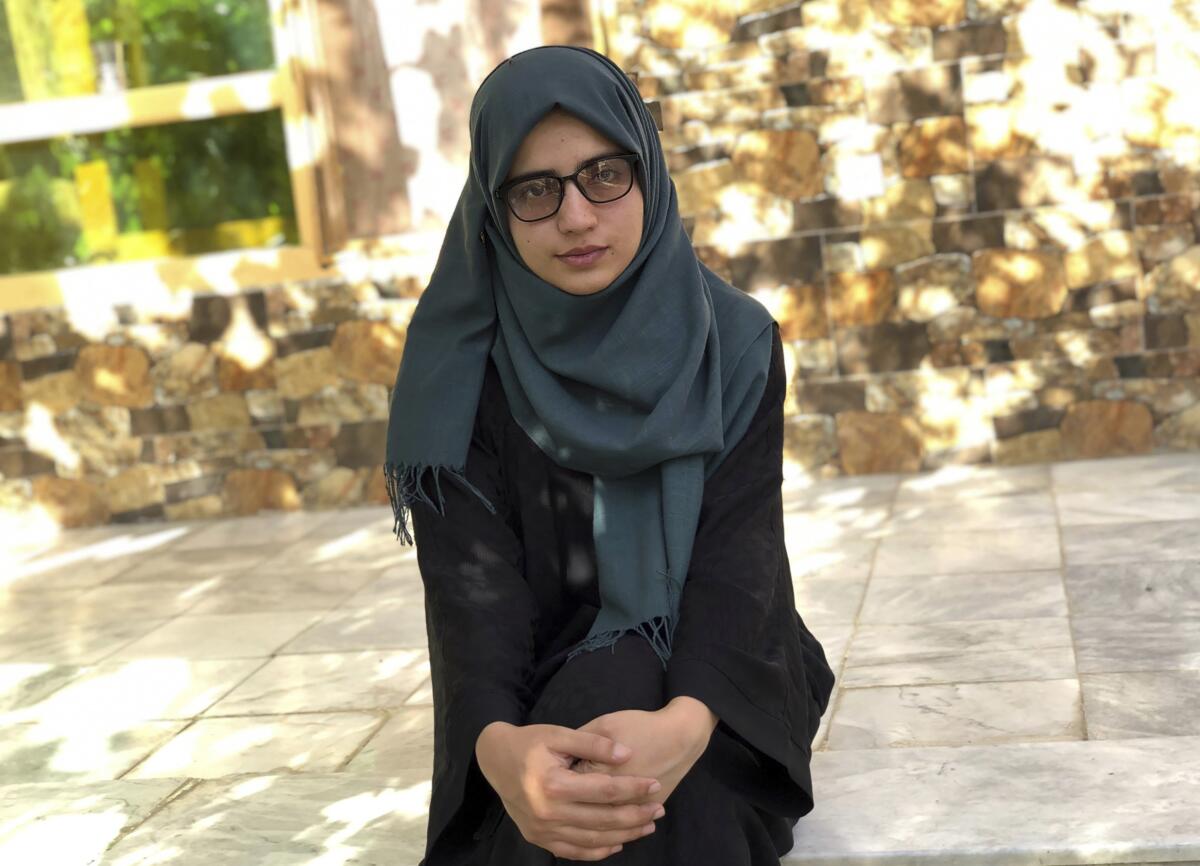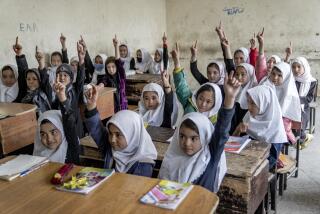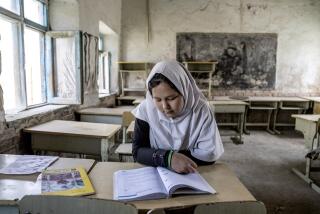Afghanistan’s top high school graduate fears for her future

Salgy Baran got the highest score in all of Afghanistan on her university entrance exams this year, but she has no answers for what comes next.
The 18-year-old wants to stay and become a doctor, but as with so many other Afghans, those plans were plunged into doubt when the Taliban rolled into the capital, Kabul, this month, capping its swift, stunning takeover of the country.
Taliban leaders say women and girls will be able to attend school and work in accordance with Islamic law — without providing specifics — even as other prominent members of the militant group have sneered at the idea of coed classrooms and hinted at more reactionary measures.
“I am not afraid right now, but I am concerned about my future,” Baran told the Associated Press in a video interview from Kabul. “Will they allow me to get an education or not?”
The Taliban says the mass evacuation of foreigners and Afghans fearful of its rule must end Aug. 31, the date the U.S. set for withdrawing its last troops after 20 years of war. The new leadership has accused Western countries of luring away doctors, engineers and other professionals whose skills will be needed to rebuild the war-ravaged country.
If that’s the case, Afghanistan’s Taliban leaders should hope Baran stays.
She grew up in a middle-class family in rural eastern Afghanistan, where medical care is still lacking despite two decades of international development aid. When she was 7, her diabetic father died after a doctor gave him an overdose of insulin, she said.
That made her want to be the kind of doctor who doesn’t make mistakes.
The family moved to Kabul in 2015, where there are fewer social restrictions on women. Her family pooled their resources to support her studies. They describe her as a quiet kid who would spend long hours reading and studying math.
This year’s exams — Afghanistan’s version of the SAT — were held before the takeover. She got the highest score of anyone in the country, out of about 174,000 boys and girls, according to the National Examination Authority. That secured her a spot at the Kabul University of Medical Sciences, the country’s top school of medicine.
An entire generation of Afghan women have benefited from the Western-backed order established after the 2001 U.S.-led invasion drove the Taliban from power.
When the militant group last ruled the country, women were forbidden to attend school or work outside the home. They could go outside only if accompanied by a male relative, and even then they had to wear the all-encompassing burqa garment.
Progress since 2001 has been incremental and largely confined to urban areas. The United Nations children’s agency estimates that 3.7 million Afghan children are out of school, 60% of them girls, and 17% of girls are forced into marriage before their 15th birthday.
But on the eve of the Taliban takeover, girls were attending school, particularly in Kabul and other cities, and women could be found in parliament, government and business. Many fear the Taliban will roll back the clock.
Abdul Baqi Haqqani, a Taliban official supervising higher education, said women will be able to continue their studies in “proper facilities,” without elaborating. But another Taliban official, Mohammad Khalid, addressing a conference of Muslim clerics earlier this week, expressed disgust at the idea of boys and girls studying in the same classroom.
Interpretations of sharia, or Islamic law, vary widely across the Muslim world, but in most countries, women work and study relatively freely. The Taliban could simply require a Muslim headscarf or insist on separate classrooms for boys and girls.
But no one really knows — not yet.
Baran and her family have no immediate plans to join the exodus of Afghans, but they are worried about what comes next.
“I had goals under the past government, I had planned everything out for several years,” she said. “But under this government, I can’t say anything. Even tomorrow is uncertain.”
More to Read
Sign up for Essential California
The most important California stories and recommendations in your inbox every morning.
You may occasionally receive promotional content from the Los Angeles Times.










